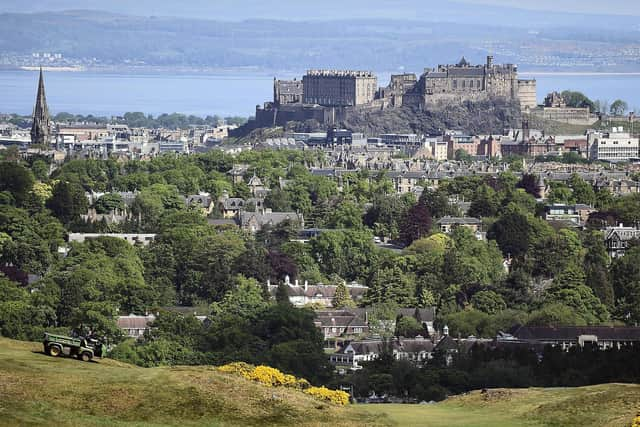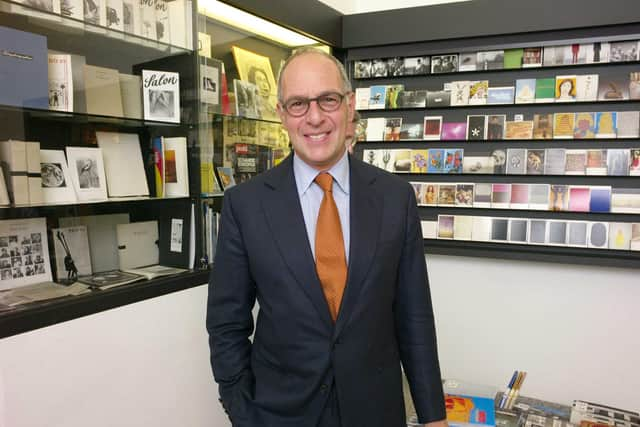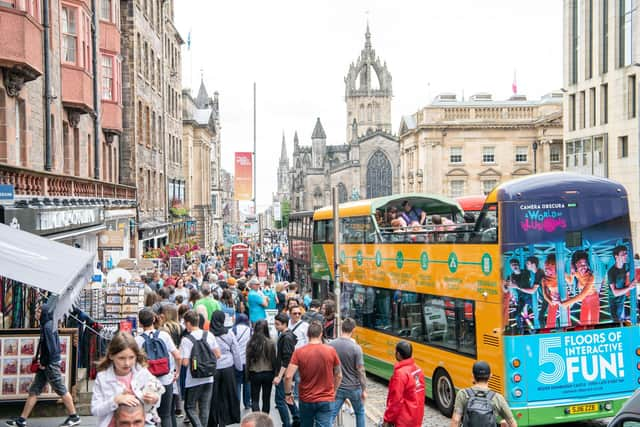Heritage campaigner Loyd Grossman urges Edinburgh to rethink revival of 'honeypot' tourism industry
Loyd Grossman said the Scottish capital had been suffered badly after capitalising on the “explosive growth” of the global tourism industry in modern times.
Mr Grossman, who has been advising the charity charged with protecting Edinburgh’s World Heritage Site status, strongly urged the city to resist the temptation to "go back to the way things were”.
Advertisement
Hide AdAdvertisement
Hide AdHe also recommended that its citizens are properly consulted about how the city’s tourism industry, which is believed to have been worth more than £2 billion and supported around 36,000 jobs in recent years, should reboot and recover.
Mr Grossman said Edinburgh had become known as “one of the tourism honeypots of Europe”, but had ended up with a “deformed” economy and parts of the city which were “flooded” with visitors.
He called for alternative options to be explored for the city centre and its historic architecture to ensure they remained appealing to the people of Edinburgh, and as a place to invest in and relocate to.Boston-born Grossman, who made his name as a journalist and broadcaster, is a previous chair of the Heritage Alliance and a former commissioner of the Museums and Galleries Commission, English Heritage and the Royal Commission on the Historical Monuments of England.In an exclusive interview, Grossman said: “Edinburgh is both a heritage city and a city, with very significant financial and commercial enterprises, which is very well connected globally and nationally.
“But as has happened with so many other places, the explosive growth of tourism has turned Edinburgh into a tourism honeypot. It unquestionably became one of the tourism honeypots of Europe.
“Well before the pandemic, we were all talking about the dangers of overtourism and how it damages and deforms economies.


"That was getting to be a real problem in Edinburgh, where a large percentage of city centre properties were turned into Airbnbs and some areas became totally flooded with tourists.
"There were already management problems within Edinburgh and then this very rich segment of the economy suddenly collapsed.
Advertisement
Hide AdAdvertisement
Hide Ad“This is now an opportunity for Edinburgh to rethink things. How much tourism do you want? What kind of tourism do you want? You can go for low-value mass tourism or cultural tourism, higher-value, more thoughtful tourism.
"These are political decisions, which are made by politicians on behalf of the people, but they need to be presented with alternatives. We can’t just immediately go back to the way things were."


Grossman spoke to Edinburgh World Heritage trust supporters this week, ahead of the lifting of the first travel restrictions.
He added: “Edinburgh has always had a very rich mix of economic activities and has a fantastically rich heritage. We know that historic buildings are attractive in their own right, but they’re also highly attractive to new businesses and the expansion of existing businesses, and making people of talent want to live in a place.
“Edinburgh has also got to realise that if it wants to be a great and attractive city to tourists, the first obligation is to be a great and attractive city to the people who live there.”
A message from the Editor:


Thank you for reading this article. We're more reliant on your support than ever as the shift in consumer habits brought about by coronavirus impacts our advertisers.
If you haven't already, please consider supporting our trusted, fact-checked journalism by taking out a digital subscription.
Neil McIntosh
Editor
Comments
Want to join the conversation? Please or to comment on this article.